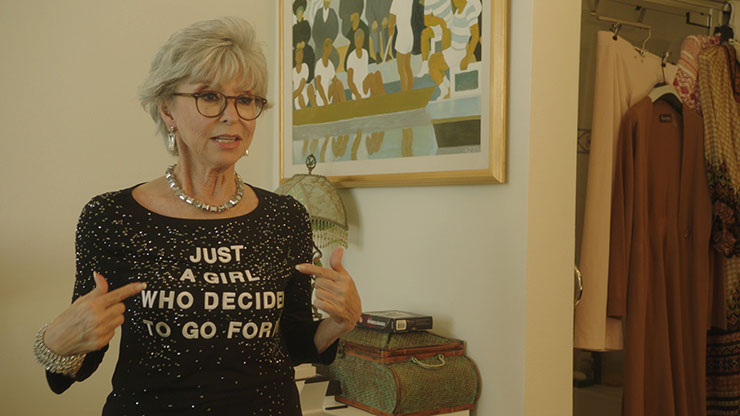
Rita Moreno (Courtesy of Roadside Attractions).
There's nothing wrong with reveling in the glitzy side of celebrity. Some of Hollywood's most enduring creations have feted (and fetishized) moviedom's lights-camera-action appeal across the decades. These days, though, I've hungered for works that pull the curtain on the den of vipers festering underneath Tinseltown's unblemished façades. I want my inside scoops on what some of the biggest names attached to the dream factory endured, during and after their rise to the top, to be as unvarnished and spin-free as possible.
Do you share my curiosity? Well, you're in luck. Not one, but two documentaries opening this week tackle the lives of three figures linked to some of the most popular and well-regarded motion pictures of the 20th century. These names are so influential that they remain household names to this day, but while fans may be familiar with their contributions to film, TV, theater and literature, some personal aspects might still be under wraps. Let's see how these new releases, which debuted at local film festivals prior to their current commercial runs, fare in exploring the turmoil behind these brilliant careers.
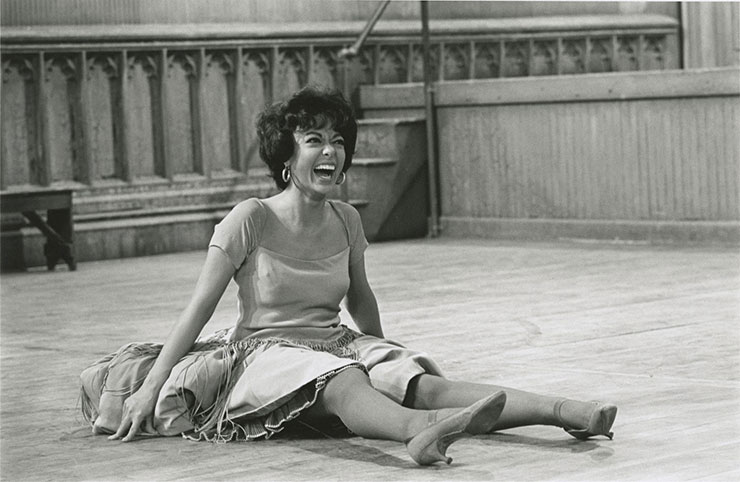
Rita Moreno (Photo courtesy of MGM Media Licensing).
“Rita Moreno: Just a Girl Who Decided to Go for It”: It's a look of defiance that cuts like a knife, yet betrays deep pain and vulnerability. Anita confronts the Jets gang members who attacked her toward the end of “West Side Story” and makes it clear she is nobody's victim, as her face reveals some emotional battle scars. The moment is electric. It gets under the skin, and it's likely what sealed the deal for the Academy members who gave Rita Moreno the Best Supporting Actress Oscar in a year Judy Garland was favored by many to win for “Judgment at Nuremberg.” Your mileage may vary on the legacy of Robert Wise and Jerome Robbins' 1961 screen adaptation of the Leonard Bernstein/Stephen Sondheim/Arthur Laurents stage musical. (Pauline Kael dismissed it as a musical for people who don't usually care for musicals.) But there appears to be consensus about one aspect: Moreno's ferocious star turn, which powers through the objections one may have with some of the film's more dated and problematic elements, such as its portrayal of New York City's Puerto Rican community.
Documentarian Mariem Pérez Riera keeps circling back to that shot of the younger Moreno throughout her deceptively lighthearted portrait of the Puerto Rican performer and her 70-plus-year career, but not for the reasons you might imagine. The scene, the filmmaker argues, crystallizes a moment when her subject drew from her own past suffering to nail the take. And, much to viewers' benefit, this subject has no intention of pulling any punches to discuss her life.

Rita Moreno (Courtesy of Photofest).
That uncompromising candor is what elevates “Just a Girl Who Decided to Go for It” above the hagiographic back-patting that mars so many of these celebrity docs. For a while there, though, it appeared this film was going the way of “RBG,” a passable look at legendary Supreme Court Justice Ruth Bader Ginsburg that possesses little of her rigor and at times even plays like a frivolous TikTok video. The early portions of “Just a Girl” mostly take place inside Moreno's home, as she puts the finishing touches on a party she's organizing. We take a peek at her kitchen, the pictures in her living room, the fabulous clothes in her closet.
Pérez Riera intersperses some talking-head tributes from A-listers, including executive producers Lin-Manuel Miranda and Norman Lear, who have either worked with Moreno and/or are understandably in awe of her. She also follows Moreno during a day of taping of her sitcom “One Day at a Time” in 2018. It amounts to comfort food non-fiction that makes one go, where's the meat?
Hang on a sec, because once Moreno sits down for "the interview," the film starts showing more bite. Pérez Riera traces the star's long-gestating rise to fame, from a childhood in poverty in rural Puerto Rico, to her dance debut at a Greenwich Village nightclub at age 6, to being her family's sole breadwinner. A fateful meeting with Louis B. Mayer at the Waldorf Astoria lands her an MGM contract, and gives her a front-row seat to the nasty side of the studio system.
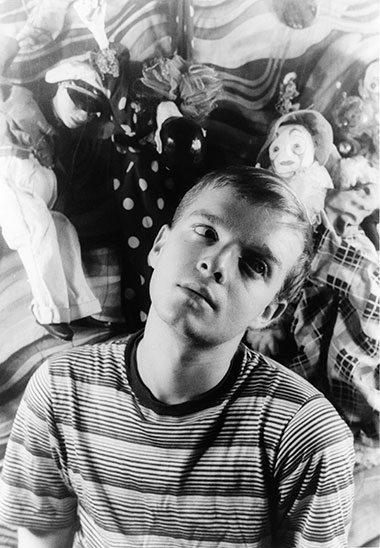
Truman Capote (Corbis Historical, Getty Images/Kino Lorber).
This is when the gloves come off. Moreno never lets you look away, not when she agrees to go to a party to potentially benefit her career, only to be pawed and propositioned by powerful white men used to getting what they want. (Her use of an “f” bomb to quote one of these individuals goes off like an atom bomb.) She never lets you look away when she keeps being cast in roles with ethnicities that have noting to do with her background, though Hollywood vets like Peter Lorre and her onscreen dad Yul Brynner also knew a thing or two about this unsavory typecasting. And she never lets you look away when she describes, with plainspoken directness, how she was raped by the man who became her agent.
Moreno displays similar frankness when delving into her destructive relationship with Marlon Brando and her later marriage to Leonard Gordon. The latter, she points out, was not the fairy tale union the couple made it seem. She also reveals what happened after that thrilling Oscar win, when one would reasonably think she would be at her peak: the offers dried up, and she had to recalibrate her career, heading to TV and the stage and eventually claiming EGOT bragging rights. She's one of a handful of people who's won at least one Emmy, one Grammy, one Oscar and one Tony. (This Jim Henson fan takes great pleasure to learn one of her Emmys was for a guest appearance on “The Muppet Show.”)
“Just a Girl Who Went for It” is chock-full of these revelations and anecdotes, the kinds documentarians tend to struggle to wring out of their subjects. But Moreno, often reminiscent of Jane Fonda during her interview, wields her openness like a weapon, the better to help cleanse demons from the past. (Its title, fittingly enough, comes from a phrase on a sparkly shirt she wore to an awards ceremony.)
If there is one thing that keeps this from being a better doc, other than its self-congratulatory streak, it's a messy narrative thread. Pérez Riera is fond of going off in tangents. For instance, she's unable to weave in Moreno's commitment to women's rights, so when she inserts that content halfway though, it sticks out like a sore thumb and shatters the flow.
But an occasionally wobbly structure and extensive victory-lap adulation are no match for the force of nature at the center of this uneven but rewarding film. The coronation in this case is fiercely earned, through blood, sweat and tears.
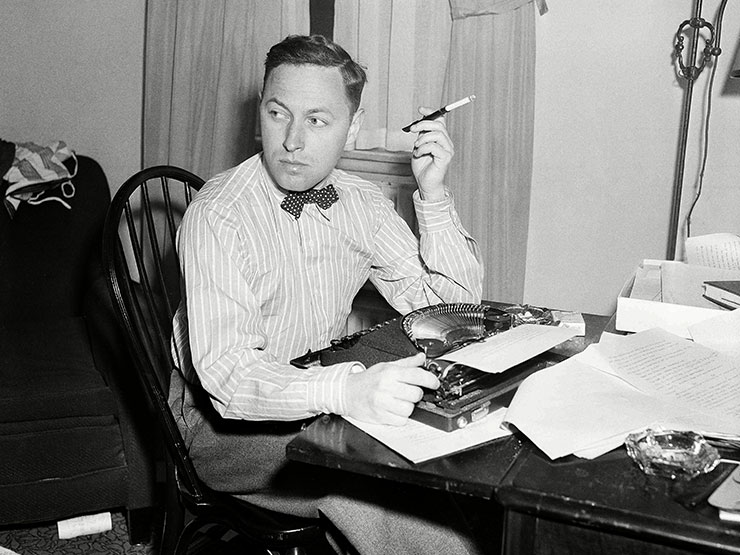
Tennessee Williams (Photo: Shutterstock provided by Kino Lorber).
“Truman & Tennessee: An Intimate Conversation”: It was a friendship than was also a rivalry about as often, and filled with enough drama to fuel decades' worth of self-destructive behavior, petty sniping and some of the most accomplished works of theater and literature of the past century. But like in the “Highlander” movies, there can only be one, and in the battle between two Southern men who achieved fame with their wicked turns of phrase and gift of gab, it's Truman: 1, Tennessee: 0.
Not to put down Mr. Williams' rich contribution to stage and film, but this rather square portrait of the highly influential wordsmiths and their “lifelong friendship” lives or dies by their own words. They're given a voice by none other than Jim Parsons (Truman) and Zachary Quinto (Tennessee). The openly gay actors, who starred opposite each other in the 2018 Broadway revival of “The Boys in the Band” and last year's Netflix adaptation, do their damnedest to capture the essence of these gifted, troubled men, but only Parsons succeeds. He nails Capote's nasal cadences and lisp. Quinto, on the other hand, struggles to get a handle on Williams' Mississippi accent, but the more he tries to capture the playwright's bluster, the more distracting his delivery becomes.
The details of how both literary figures befriended and encouraged each other are consistently engaging, despite the spotty voiceover narration, but documentarian Lisa Immordino Vreeland's slick approach too often stays on the surface when chronicling these tumultuous lives.
The filmmaker has done this kind of polished biography better in past efforts, notably in “Love, Cecil,” her heartfelt and illuminating look at the life of photographer and Oscar-winning stage and costume designer Cecil Beaton. She's on shakier ground here. Purists, for instance, will certainly take issue that the film does not preserve the 4:3 aspect ratio of the films and TV interviews it presents.
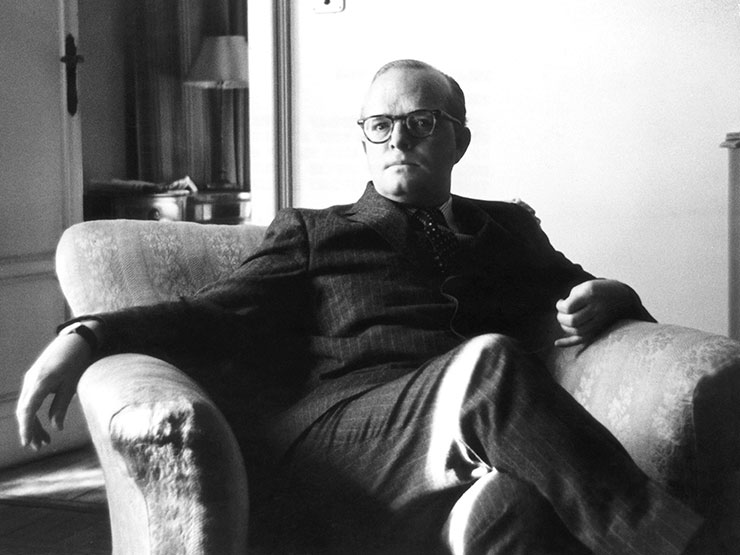
Truman Capote (Photo Getty Images, provided by Kino Lober).
Thankfully, though, the subject matter is simply too interesting to mess up. The movie covers a wide array of aspects about the men's lives, from writing and censorship to their torrid love affairs. It even devotes time to depict Williams' contempt for Capote's dog, as needy as its master. That's all fine, but at the same time, one is left wanting to know more about the men's creative process, which too often takes a back seat to their snippy bickering. Tellingly, there is precious little content from Williams' actual plays, though footage from the 1973 made-for-TV production of “The Glass Menagerie,” the semi-autobiographical play that put him on the map, is one of the highlights here. Another is Capote's drive and laserlike focus in bringing his true crime masterwork “In Cold Blood” to fruition.
The elements are all there for a juicy portrayal of these seminal talents, but Immordino Vreeland settles for something that feels more like a cocktail reception: cordial and pleasant, but not likely to leave a lasting impression. It's watchable enough, but it leaves you with the nagging feeling that it didn't try hard enough to match this creative duo's stature.
“Rita Moreno: Just a Girl Who Decided to Go for It” is now playing across South Florida, including at the Coral Gables Art Cinema, Tower Theater in Little Havana, Silverspot Cinema in downtown Miami and Regal South Beach. It had its local premiere back in March as part of the 2021 Miami Film Festival, which presented Moreno with its Precious Gem Icon Award. “Truman & Tennessee: An Intimate Conversation” is now showing at O Cinema South Beach and is also available for digital rental through Kino Now. It was part of the lineup at last November's Key West Film Festival, where it won the Best LGBTQ Film Award.




